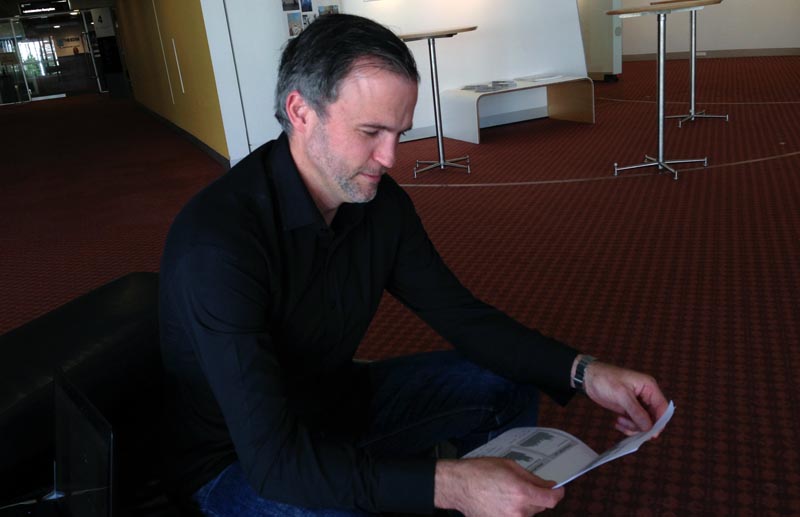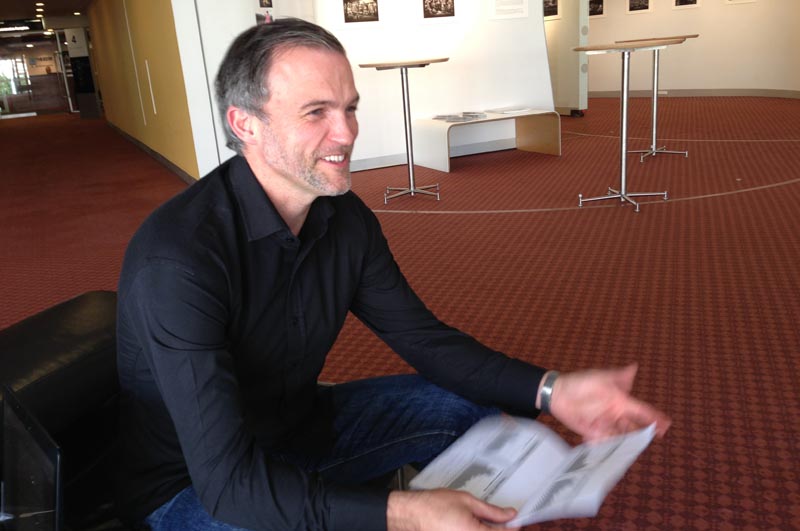Fishpond tops $100m, talks up Amazon hosting
Auckland-based online retailer's CEO talks up Amazon Web Services – and the cost.
Auckland-based online retailer's CEO talks up Amazon Web Services – and the cost.
Fishpond GM Ben Powles reels off the numbers.
The Auckland-based online retailer sold a product every seven seconds last year. It added a new customer every 51 seconds.
Revenue topped $100 million revenue for its year ended March 31, Powles tells NBR ONLINE.
That’s up from $79 million last year.
A couple of points of reference: bricks-and-mortar top dog (and half-hearted e-tailer) The Warehouse had revenue of $1.72 billion in 2012; Briscoes $438 million.
Powles says Fishpond, founded in 2004, has always been profitable.
He won’t put a specific number on it (the privately-held company doesn’t release accounts).
Would it be a single-digit percent? Powles nods. Because this the thin-margin world of retail? There’s a bit of that, agrees Powles. But, more, money is being reinvested in growing the business.
Things seem to be going well for Fishpond’s owners, who include the Robertson family, Maurice Bryham (co-founder of PC Direct, and exo-net – an early online accounting system sold to MYOB) and Trade Me alumnus Rowan Simpson (former Buddle Findlay solicitor Powles has a 0.18% sliver).
Still, it's touch-and-go whether Fishpond is a household name. I was close to putting “online retailer” in the headline above. And in the great scheme of things its local business is modest, if fast-growing.

Powles swots up ahead of his AWS NZ Summit presentation.
In physical terms, Fishpond’s model is to not hold stock itself, and its office by the airport in Mangere is 1500 square metres – modest next to Mighty Ape’s 5400sqm.
In the virtual world, it’s a different story. Traffic is big. Very big, at least by NZ standards.
The average day sees around 250,000 unique visitors generating around 2 million page views, Powles says.
And across 13 million products, prices need to be updated at the rate of around 600 per second - and in 14 currencies, to boot.
In 2010, Fishpond directly approached Amazon Web Services (AWS) in the US about hosting. The giant US e-tailer and hosting company steered it toward one of its US resellers, Rightscale, which got it signed up (AWS also has a local agent, fast-growing Fronde).
Powles says it AWS has reduced its pricing several times (AWS CTO Dr Werner Vogels later tells NBR the service has cut its pricing 33 times since it launched in 2006).
Currently, Fishpond pays around $30,000 a month on AWS hosting – pricing that looks very keen from where NBR stands.
Powles says it’s true cloud computing. You can set business rules that autoscale extra servers in seconds if traffic demand warrants. Fishpond doesn’t do that, but it can still manually add servers within minutes. The GM says a server can also be added for, say, software testing, then released as soon as they no longer need it.
And among other advantages, it means Fishpond only has two staff members devoted to network and server issues (and only two so one can cover). By contrast, it employs 23 developers.
There’s a lot of convenience in the only-pay-for-what-you-need cloud model.
But, ironically, Fishpond has increasingly been taking advantage of an AWS programme called “Reserved Instances”, which offers discounts of 40% to 60% if you pay for a chunk of bandwidth upfront, as per the more traditional web hosting model (at the other end of the scale, AWS operates a spot market that sees its largest customers bidding for unused bandwidth).

Fishpond uses one of Amazon’s oldest server farms, “US East”, in Northern Virgina. Powles says there’s a 150ms lag, but that’s fine for the relatively straightforward structure of an e-tail site (and pages do load in reasonably snappy fashion). AWS also has a data centre in Sydney, which has lag around the 25ms mark, but Powles says his company is happy where it is.
NBR spoke to the GM before the AWS NZ Summit at Auckland’s Aotea Centre, where Fishpond is paraded along with other showpony customers including Westpac, MetService, Victoria University, Snapper and game company SmallWorlds.
Powles doesn’t give AWS a free ride. He agrees with NBR that it’s ironic his company is hosting with AWS, given Fishpond competes with its core business, Amazon.com.
But there’s a good separation of church and state, Powles says – and it’s safe to figure that AWS can employ skills learnt hosting the world’s largest retail operation.
Mischievously, he notes Fishpond is not the only Amazon.com competitor hosted by AWS. Netflix, which competes against Amazon Prime, is also hosted by AWS.
In fact, Netflix, Amazon Prime (a music and movie streaming service not available for NZ) and Fishpond are among the many businesses that cohabitate in AWS’ US East data centre.
Christmas Eve saw a major outage strike Netflix, but not Prime (or most others, including Fishpond), Powles notes.
He says this not by way of advancing a conspiracy theory, but by noting that for all its expertise, stuff still happens with AWS – and the high profile nature of some of its clients means the whole world hears about it (Pinterest and Foursquare also had AWS hosting stumbles in 2012).
Overall, Fishpond is a very happy customer. Powles won’t but a stat on server outages but says they are less of an issue than, say, power cuts at the company’s Mangere headquarters. And he’s a big fan of AWS’ transparency. A live-blog style dashboard lets customers follow AWS efforts to address any issue in Virginia.
“We’ve looked at the cost of coming closer. It’s easy to do,” Powles says.
But so far, he says, Fishpond hasn’t found anything that comes close to matching AWS.